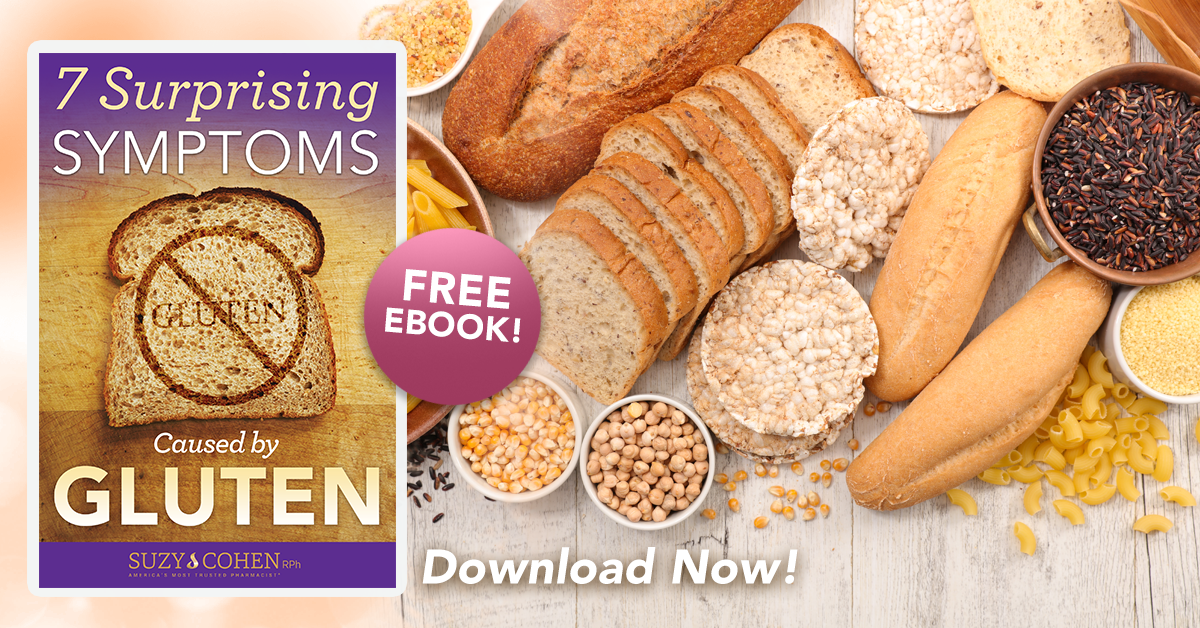Kiwi is among my favorite fruits of all time. It ranks up there with figs and papaya for me. Kiwi got rebranded in 1959 when it had been known as “Chinese Gooseberry.”
New Zealand had began growing it and and export it. They considered various names and settled on “kiwifruit,” which they thought was more exotic and fresh. It was helpful that “Kiwis” had become a colloquial term for New Zealand residents. But the true irony is that New Zealand is the world’s top exporter, yet kiwis are native to China, and a national fruit of China!
This fuzzy fruit is so delicious in the summertime and I love putting slices in my ice water, or mixing some of it into fresh fruit salad. If you’re allergic to kiwi, it’s more than likely from the kiwellin which is a tiny component of a protein called kisspar which naturally occurs in kiwi fruit. You might find this interesting… if you’re allergic to peanuts (or tree nuts) you might react badly to kiwi as well. A study in 2014 published in Allergy noted the cross-reactivity with kiwis and tree nuts.
When you digest the fruit, it releases similar antigens causing a similar immune reaction. The allergic reactions from kiwi range from mild to severe.
The little black seeds in kiwi do more than just get stuck in your teeth. They give you a small amount of healthy omega 3 fatty acids. An average kiwi has about 30 milligrams of alpha-linolenic acid. As you know, omega 3 fatty acids are important for your brain and your heart. Kiwi seeds also have a little bit of vitamin E which is needed for your skin, pancreas, heart, brain, liver and kidneys. Vitamin E actually protects your dopamine-producing neurons and that’s good. It means that E can help stabilize your mood.
Kiwi is a great source of natural vitamin C and A. It is a good source of natural folate, which helps with methylation, which then leads to breakdown of homocysteine. It’s high in thiamin, and riboflavin which help your adrenal glands and your brain. Kiwi is a super juicy super food.
Kiwi also offers some vitamin K (phylloquinone) and minerals such as potassium, calcium, magnesium and phosphorous. In this regard, it’s great for blood pressure and bones! The fleshy part green part gives you an added bonus of fiber which promotes smooth traffic through your colon (regularity) and simulate healthy probiotic growth! This brings me to my first kiwi perk… IBS.
1. Irritable Bowel Syndrome (IBS) – Kiwi has compounds in it that reduce activation of intestinal cells which ruin your gut. IBS creates a lot of inflammation in the gut. Basically, the results of a STUDY in Cellular Immunology found that kiwi could function medicinally as a fantastic anti-inflammatory for the gut.
2. Asthma and Wheezing – Kiwi is rich in all kinds of antioxidants especially vitamin C which promotes collagen. Collagen is best known for joint health and anti-aging benefits. It’s a surprise to most people that collagen is needed for healthy breathing. You see, collagen is needed for healthy connective tissue which is what your pulmonary system is made of. I think it’s a great way to reduce your risk of cold and flu, and improve symptoms of allergic rhinitis.
There was a study published in Thorax that concluded how effective kiwi can be for wheezing. Essentially the kids who ate kiwi each day reported a reduction of wheezing by 44 % compared to kids who did not eat any kiwi. The kiwi-consuming group also noticed fewer nocturnal coughing fits and runny noses. I’m sure this is from some of the naturally-occurring proteins and enzymes in kiwi, as well as the high content of vitamin C which is a natural anti-histamine.
Two regular kiwis (about a cup) offers over 160 mg of natural vitamin C.
Kiwis contain about twice the amount of vitamin C compared to lemons and oranges.
3. Depression and PMS Melancholy – Some foods are naturally high in serotonin and tomatoes are one of them. Kiwis have twice as much serotonin as tomatoes. Serotonin is a “happy” brain chemical that lifts mood, induces relaxation and boosts self esteem. People who are aggressive or hostile, or live in “fight” mode might be low in serotonin.
There are MRI studies that suggest serotonin deficiency makes it more difficult for the prefrontal cortex of the brain to control emotional responses to issues that cause anger. It’s possible to see these ups and downs in moods in people who are supported on SSRI therapy, perhaps they lash out, or become irritable. This reaction occurs because as the drug levels in their blood stream decline, their aggressiveness might increase until they take their next dose. It doesn’t happen to everyone, and doesn’t necessarily have to be consistent but it’s a possibility due to the peaks and troughs of their serotonin.
Eating kiwis can essentially make a person feel more content because it acts as a natural fruit anti-depressant! You don’t have to be concerned about eating the fruit while you’re on antidepressant medication, there’s not that much to cause an interaction.
Serotonin is metabolized in the body to melatonin. Have you heard of that? It’s released from your pineal gland in response to darkness.
That leads me to my next kiwi perk…
4. Sleep – Serotonin converts in the body to melatonin and that makes you sleep. Eating kiwis can help you fall asleep faster, and sleep a little bit longer by virtue of the fact that it is high in serotonin, which your body converts to melatonin. So have an entire kiwi or two for desert at dinner time tonight, and see if you sleep better. Don’t take it too close to bedtime because serotonin is stimulating, so it’s only going to act as a sedative a few hours later when the serotonin has broken down into melatonin.
Studies have proven that poor sleep have something to do with poor levels of antioxidants. Kiwi is a superfood and contains compounds that fight oxidative damage, even to the extent that it might help a little bit with sleep apnea. Certainly, don’t give up your CPAP mask, but why not eat a kiwi every day?!
A STUDY published in the Asia Pacific Journal of Clinical Nutrition aimed to find out how kiwi impacted sleep patterns. They evaluated 24 people, mainly women aged 20 to 55; these participants ate 2 kiwifruit per day an hour before bedtime and did so each night for four weeks. The researchers looked at a lot of parameters such as the time the participants when to bed, total sleep time, waking time, how long it took them to fall asleep and more. They found out that every aspect of sleep quality improved between 5% and 42% depending on the parameter. Total sleep time and sleep efficiency were significantly increased (13.4% and 5.41%, respectively).
If you’d like to learn about more ways to improve sleep naturally, check out my article on how Eating Lettuce Might Make You Sleepy.
5. Stress – Vitamin C is known to lower cortisol. Kiwis are high in vitamin C. This means better relaxation. Vitamin C increases dopamine formation, which makes you happier and more passionate.
6. Sex drive – Vitamin C is a cofactor in a natural reaction that can increase testosterone levels in testicular leydig cells. This means that kiwis, which are loaded with vitamin C are great for fertility and libido. Make an aphrodisiac with kiwi to jump start the fun in your bedroom.
7. Your eyes – Natural antioxidants like lutein and zeaxanthin are needed to support vision. Kiwi contains these special eye-loving nutrients. If you’re suffering with glaucoma or cataracts, why not eat a kiwi today each day as part of your diet.
8. Respiratory Infections – Kiwi contains carotenoids, vitamin C, polyphenols and dietary fiber which support your immune system. There was some RESEARCH published in Advances in Food and Nutrition Research in 2013. Compounds in kiwi were found to modulate the immune response in such a way that it reduced biomarkers of inflammation and oxidation. This means that animal in this study showed reduced severity of upper respiratory tract infections and the intake of kiwi worked better than vitamin C alone.
I think it’s a great fruit to eat if you have suppressed immunity or chronic sinus or lung infections.
9. Anemia – If you’re iron deficient and supplementing with iron tablets, you can boost the amount of iron your body takes up with vitamin C containing fruits. This is why some physicians and pharmacists suggest drinking a little bit of orange juice with your supplement. The vitamin C dramatically boosts the absorption of the iron. Since kiwi is a rich source of vitamin C, you can eat a kiwi with any iron-rich meal (think steak or liver) or you can eat one with your daily iron supplement.
Are you ready to start eating more kiwi? It’s easy. Just peel and slice a kiwi and then put it on top of your salad, or eat it plain like you would an apple, or cut some into your yogurt in the morning. Kiwi is tart and sweet so it’s wonderful to include in your summer fruit salad or if you’re adventurous, substitute kiwi for zucchini! In fact, you can CLICK HERE if you’d like my recipe for New Zealand Kiwi Bread.

Suzy Cohen, has been a licensed pharmacist for over 30 years and believes the best approach to chronic illness is a combination of natural medicine and conventional. She founded her own dietary supplement company specializing in custom-formulas, some of which have patents. With a special focus on functional medicine, thyroid health and drug nutrient depletion, Suzy is the author of several related books including Thyroid Healthy, Drug Muggers, Diabetes Without Drugs, and a nationally syndicated column.


